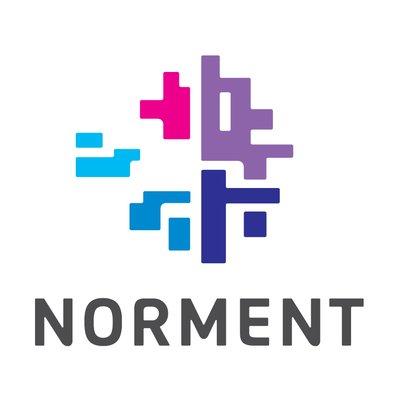Stéphanie's Projects

Hovedinnhold
In the last decade, genetic studies of psychiatric disorders have identified numerous genomic regions that harbor genetic variants which are associated with increased risk to develop a psychiatric disorder (e.g. schizophrenia or bipolar disorder). One of the main challenges for understanding the effect of these variants is to first determine which of the genetic variants or the genes in those regions that have a functional effect. Our group bridges Molecular Genetics and Functional Genomics.
Aims
Our main aim is to better annotate regions of genetic susceptibility to mental disorders in order to narrow and identify the genetic variants with potential functional effects to move towards functional genomics studies.
We are also developing projects with epigenetic tools and datasets to try to understand how the environment can influence the genetic susceptibility to develop psychiatric disorders. We aim to:
- Better annotate some candidate regions implicated in psychiatric disorders to move towards the functional characterization of these regions.
- Integrate environmental information with epigenetic and genetic information to understand the gene by environment in susceptibility to mental disorders.
We particularly focus on schizophrenia and bipolar disorder. For the environment effects, we are focusing first on the effect of cannabis. We use mostly biostatistics and bioinformatics tools for the analysis of datasets.
We generate our own datasets for some epigenetic markers in patients and we also use publically available datasets to investigate the relation between epigenetic marks and loci of susceptibility for psychiatric disorders.
We integrate different level of information in patients: Genetic, epigenetic, transcriptomics and environment data.
Summary of Projects
Stéphanie and her group are primarily focussed on employing statistical and computational methodologies to untangle the genetics of complex diseases. The group has a keen interest in Schizophrenia and Bipolar Disorder and is part of several leading International Consortia tasked with understanding psychiatric and cognitive traits.
Projects currently underway in the group include but are not limited to:
- Identifying allelic heterogeneity at the gene level across mental disorders.
- Cognition and imaging genetics: we participate in several large consortium efforts and have also a few in house projects.
- An epigenetic investigation of schizophrenia and bipolar disorder.
- Molecular mechanisms of cannabis exposure risk in patients with psychosis.
Collaboration
We are part of the K.G. Jebsen Center for Psychosis Research, headed by Ole A. Andreassen. Clinical and biological data are available in NORMENT (the TOP sample). We are part of several consortia for the identification of genetic factors for brain morphology (ENIGMA) and cognitive abilities (COGENT and CHARGE).
We collaborate with Prof. Lars Nyberg, at the University of Umeå on Brain Imaging Genetics. We collaborate with Prof Sven Cichon, University of Basel, Dr Per Hoffman, University of Basel and Life and Brain, Bonn, Prof Markus Nöthen, Life and Brain Centre, Bonn. We collaborate with Prof Jonathan Mill, University of Exeter, UK.
Lab Members
- Stéphanie Le Hellard, Professor
- Anne-Kristin Stavrum, Researcher
- Carla P.D. Fernandes , Senior Engineer
- Letícia Spíndola, Postdoctoral Fellow
- Richard Allan Davies, Postdoctoral Fellow
- Jonelle Dickow Villar , PhD candidate
- Solveig Brunstad , Medical School Research Programme
Funding
The research is funded by the Research Council of Norway, University of Bergen, K.G Jebsen Foundation and Dr. Einar Martens Foundation.

